Contributors
Ankita Arora

Articles by Ankita Arora

Award
'You can't afford to be 15 years behind the parasite'
Dec. 3, 2024
David Fidock will receive the Alice and C.C. Wang Award in Molecular Parasitology at the 2025 ASBMB Annual Meeting, April 12–15 in Chicago.
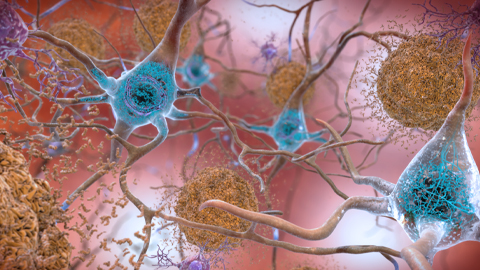
Journal News
From the Journals: JBC
Sept. 27, 2024
An Alzheimer’s disease neuronal traffic jam. Mutant Rab35 linked to neurodevelopment disorder. Is ORMDL3 a new drug target for ulcerative colitis? Read about recent JBC papers on these topics.

Feature
PROLAB brings science across borders
Aug. 8, 2024
For more than a dozen years, these travel grants have brought the next generation of international researchers into North American labs.

Journal News
From the journals: MCP
June 21, 2024
Unlocking a metabolic disorder mystery. The many roles of lactate. Tools can unveil dementia biomarkers. Read about these recent papers.
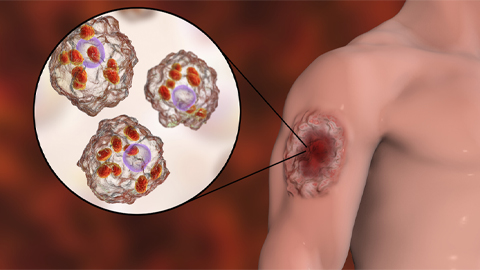
Journal News
Iron could be key to treating a global parasitic disease
April 16, 2024
A study has found that leishmaniasis causes body-wide changes in iron balance, leading to red blood cell damage.

Feature
Can science publishing be both open and equitable?
Dec. 14, 2023
An updated memo from the White House Office of Science and Technology Policy has researchers, funders and publishers looking ahead

Student Chapters
Building a chapter through community
Dec. 4, 2023
Olivia Miller sought to balance fun, education and outreach in student chapter activities at Otterbein University.
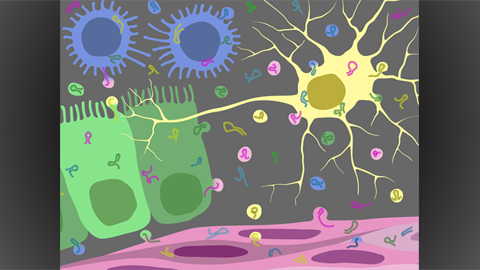
Journal News
New snapshots of RNA travels
June 21, 2023
Researchers have found that a special dye makes it easier to see what’s happening with the molecule in both lipoproteins and macrophages.

Interview
'What about all these other students?'
April 12, 2023
Carlota Ocampo, an expert on trauma, talks about how to reduce systemic inequities in higher ed.

Annual Meeting
A family history of Alzheimer’s sparks interest in basic research
March 15, 2023
JBC Herbert Tabor Early Career Investigator Award winner Jenna Lentini will share her findings on an enzyme that modifies mitochondrial tRNA, at Discover BMB.

In Memoriam
In memoriam: Albert E. Dahlberg
Nov. 14, 2022
A professor of medical science at Brown University and a member of the ASBMB for more than 35 years, he studied the catalytic role of ribosomal RNA in protein synthesis.
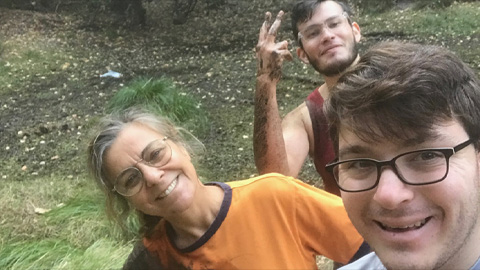
Climate Change
‘A probiotic for the environment’?
Oct. 20, 2022
A family of large extracellular elements found in pond muck seems to belong to methane-oxidizing archaea – and researchers are investigating whether they might help the microbes neutralize the greenhouse gas more efficiently.

Research Spotlight
Understanding protein dynamics to design better drugs
Sept. 21, 2022
C. Denise Okafor is an assistant professor of biochemistry and molecular biology at Penn State and recipient of an NSF CAREER award.

Feature
‘Filling the void of the virosphere’
July 31, 2022
Discovery of thousands of oceanic RNA virus species yields new insights into their roles in nature, including carbon capture.

BMB in Africa
A science journey from beer to TB
July 26, 2022
ASBMB member Colin Kenyon researches drug target identification, enzyme reaction mechanisms and rational drug design for tuberculosis at Stellenbosch University.
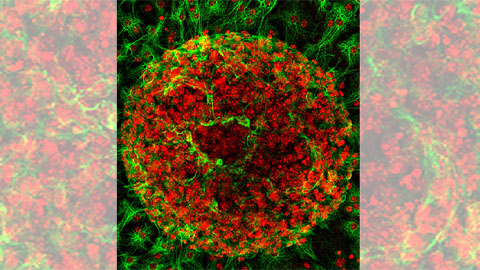
Journal News
From the journals: MCP
April 22, 2022
Uncovering a rare disease’s brain proteome. Standardizing immunopeptidome data sets. Analyzing Matrigel for organoids. Read about recent papers on these topics.
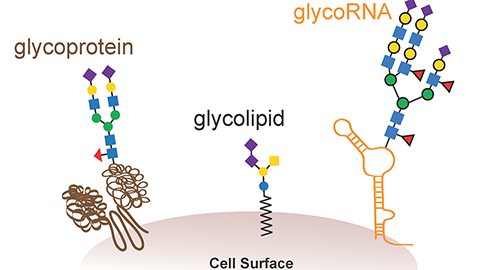
News
Researchers find a cell surface decorated with sugar-coated RNAs
Aug. 1, 2021
Finding not just glycoproteins and glycolipids but also glycoRNA means “now there are three hands, and we don’t know what that third hand is doing.”

Art
Eternal memories and an overdue tribute — storing digital data in DNA
April 21, 2021
Researchers crowdsourced 10,000 images, stored them on synthetic DNA and then used them to create a portrait of Rosalind Franklin, an often overlooked star of DNA discovery.
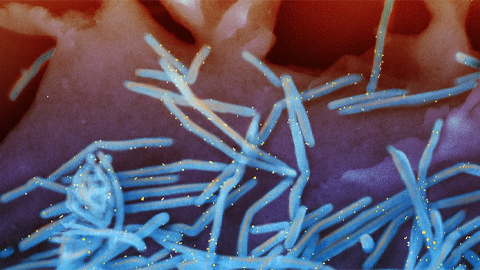
News
Scientists unmask a virus that mimicked human RNA and hit on a potential vaccine
April 18, 2021
Human metapneumovirus is a molecular mimic, sneaking past immune systems to cause cold symptoms

Health Observance
Progeria: From the unknown to the first FDA-approved treatment
Feb. 25, 2021
Hutchinson–Gilford progeria syndrome is a rare, fatal genetic disease that causes premature aging.
